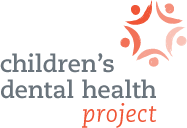The Children's Dental Health Project's blog
Advocates speak out against weakening nondiscrimination protections
 The Children’s Dental Health Project (CDHP) led a letter signed by 25 other child and family health organizations opposing roll backs to Affordable Care Act (ACA) rules that protect people from discrimination in federally-financed health programs. CDHP also submitted its own comments against the proposal. In June, the U.S. Department of Health and Human Services (HHS) Office for Civil Rights issued a proposed rule that would substantially change these important safeguards. The ACA’s regulations specifically prohibit discrimination based on race, nationality, sex, age, and disability status. They apply across health programs and care settings that receive federal assistance. If implemented, the proposed rule would be an enormous step in the wrong direction when it comes to safe and equitable access to health care and coverage, including oral health.
The Children’s Dental Health Project (CDHP) led a letter signed by 25 other child and family health organizations opposing roll backs to Affordable Care Act (ACA) rules that protect people from discrimination in federally-financed health programs. CDHP also submitted its own comments against the proposal. In June, the U.S. Department of Health and Human Services (HHS) Office for Civil Rights issued a proposed rule that would substantially change these important safeguards. The ACA’s regulations specifically prohibit discrimination based on race, nationality, sex, age, and disability status. They apply across health programs and care settings that receive federal assistance. If implemented, the proposed rule would be an enormous step in the wrong direction when it comes to safe and equitable access to health care and coverage, including oral health.
Appearing under Section 1557 of the ACA, this part of the health care law clarifies that a host of existing civil rights protections pertain to health care. It is the first civil rights law to ban discrimination in health care on the basis of sex or gender identity. These protections currently apply to all health programs, providers and health care settings that receive federal assistance. They include Medicaid, Medicare, the Children's Health Insurance Program (CHIP), health insurers and state insurance marketplaces as well as health care providers, clinics, and hospitals.
Every person has the right to comprehensive medical and oral health coverage, care, and treatment by their providers. We strongly oppose these unnecessary and harmful changes.
As such, eliminating or otherwise limiting these protections would have far-reaching effects on the oral health and well-being of millions of people. In addition to the direct impact on adults and adolescents, these changes could undermine children’s access to care if their parents are unable to secure coverage or face barriers getting the care they need. Data show kids’ enrollment in public coverage has already taken a turn in the wrong direction. Changes to Section 1557 may further erode key progress on dental coverage that children have gained in recent years.
The proposed rule would make a number of harmful changes to the ACA’s non-discrimination policies, including:
- Eliminating the definition of sex discrimination, including gender identity, risking the health of women and lesbian, gay, bisexual, transgender, queer or other gender-nonconforming (LGBTQ+) people;
- Eliminating protections against discrimination in health insurance issuing, cost-sharing, and benefits;
- Weakening important requirements to provide access to language assistance services to each individual with limited English proficiency, which could harm at least 25 million people;
- Eliminating requirements to provide patients with notice of non-discrimination policies and grievance procedures;
- Exempting many health insurance plans from the non-discrimination requirements; and
- Narrowing the scope of programs to which non-discrimination protections apply.
The sheer scope of these proposed changes threatens the oral health and overall health of a wide range of currently protected people, including LGBTQ+ persons, women, persons with disabilities and anyone for whom English is a second language. By eliminating and narrowing the ACA’s existing civil rights provisions, the proposed rule would allow unfair treatment across our health care system. It could establish new barriers to coverage and essential care, including oral health care.
Every person has the right to comprehensive medical and oral health coverage, care, and treatment by their providers. We strongly oppose these unnecessary and harmful changes in the proposed rule. CDHP will continue to work with our partners to ensure that every person is afforded the same right to health and well-being.
Read CDHP’s individual comments on the proposed changes to Section 1557.
Read the letter submitted by 26 child and family health organizations, coordinted by CDHP.
